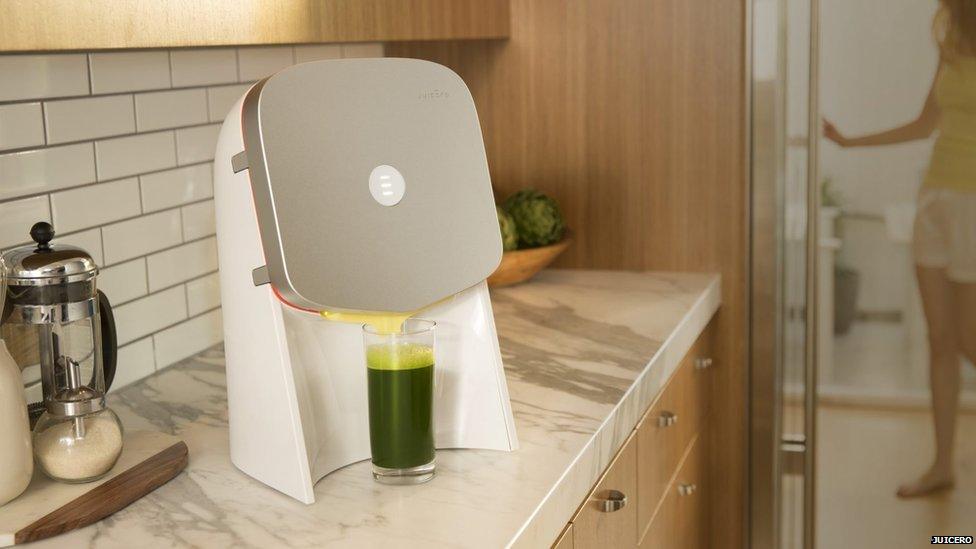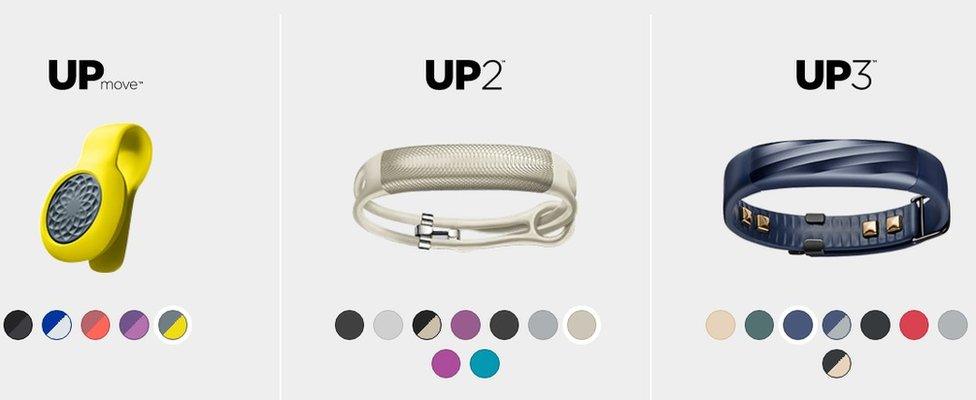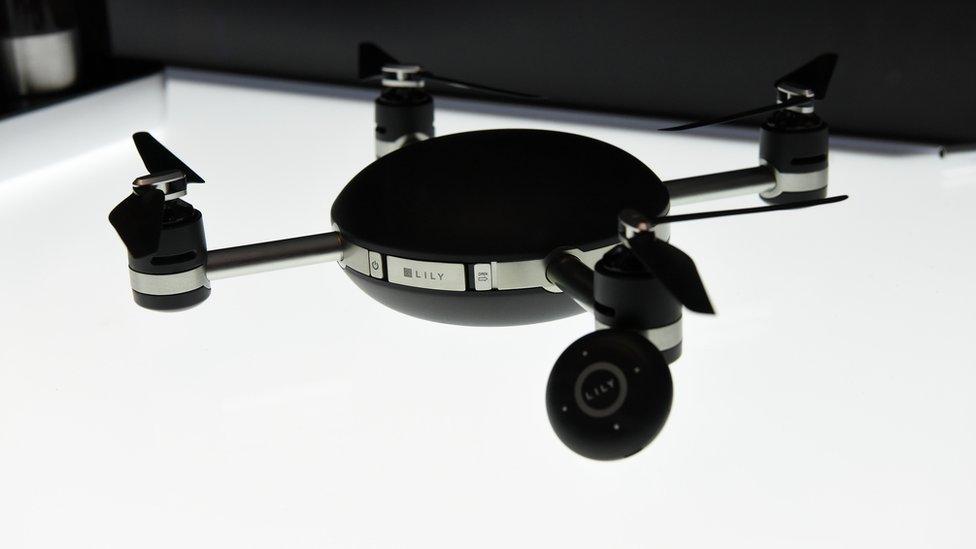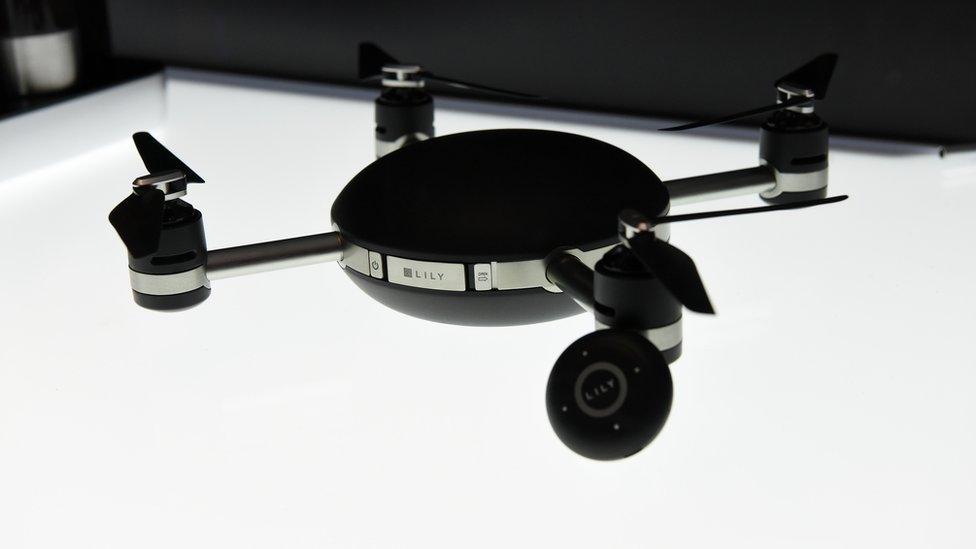Juicero and 2017's other failed start-ups
- Published

Juicero promised drinks from fruit and veg pouches.
The firm behind Juicero, a wi-fi connected juicing machine, has announced that it is shutting down.
Juicero raised around $120m (£92m) in funding to develop the device, which retailed in the US at $399.
The firm said, external that it could not create an "effective manufacturing and distribution system" on its own.
The device was widely mocked when it was revealed that the pouches of fruit and veg which it turned into juice could easily be squeezed by hand.
Here are four other tech start-ups we have said goodbye to in 2017.
Jawbone

Fitness tracker firm Jawbone began liquidation proceedings in June.
Its products were among the first fitness trackers on the market and it was once valued at more than $3bn.
The firm had been silent on social media for several months and customers with broken devices had contacted the BBC to say they could not get a response.
Jawbone trackers are still available to buy from websites including Amazon.
Yik Yak

The anonymous messaging app had raised more than $73m in funding and was at one time valued at $400m.
The platform was hugely popular with college students but it was also plagued with incidents of online harassment and bullying. The firm attempted to enforce permanent log-ins but it proved unpopular.
Yik Yak announced that it would close at the start of the academic year.
Its website has now disappeared but in a blog post published at the time of the announcement, founders Brooks Buffington and Tyler Droll thanked Yik Yak users for being "the most passionate on the planet".
Lily

The Lily drone had showed great potential.
Autonomous drone firm Lily shut down in January with $34m in pre-orders which it promised to refund.
Its product - a waterproof device with a camera onboard - was designed to be thrown into the air and could track users for up to 20 minutes via a wristband.
"We have been racing against a clock of ever-diminishing funds," wrote the company's co-founders, Henry Bradlow and Antoine Balaresque, to customers.
"Over the past few months, we have tried to secure financing in order to unlock our manufacturing line and ship our first units - but have been unable to do this."
A drone called Lily Next-Gen is now available to order from the Mota Group, which bought the branding rights, but it does not have the same functionality.
Beepi

Beepi was a digital used car marketplace that raised $150m and had at one time been valued at $560m.
It began selling off its assets in February 2017.
A report by news site TechCrunch, external suggested Beepi had faced organisational issues and had spent money unwisely. Its founders denied this and said it was a "sad time" for the firm.
"The Beepi spirit lives on. Down, but not out," they wrote.
Its website now redirects to a car buying platform called Vroom.
- Published19 September 2016

- Published7 July 2017

- Published12 January 2017
